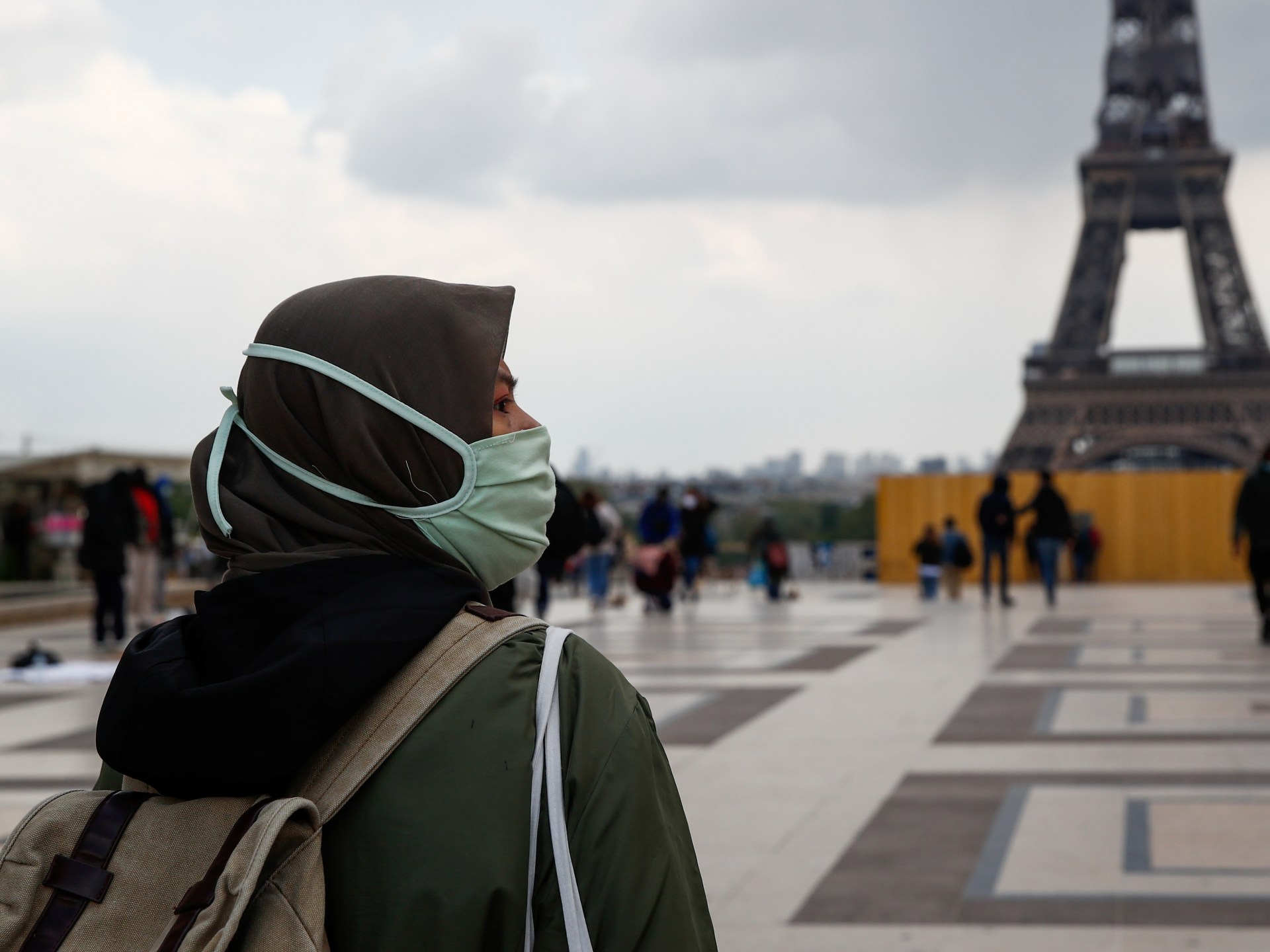In 2006, Maria de Cartina, 13, decided to wear the hijab, but when she arrived at her school in Lyon, France, she faced opposition from the staff and they forced her to take it off.
Today, French Education Minister Gabriel Attal's decision to ban the wearing of the abaya inside schools has brought back painful memories to the minds of many Muslim women in France, including de Cartina.
The young Frenchwoman, who is also a human rights activist, spoke about her memories with her school staff who forced her to take off her hijab, saying that "it was humiliating and frustrating, I felt like I was removing a part of me, and it was very difficult."
At the time, staff would stand at the entrance to the school to make sure she didn't enter with her head covered.
In 2004, France banned all kinds of religious symbols in schools and government buildings, such as the Islamic headscarf, Christian crosses and the Jewish hat.
Nearly 20 years later, the French government has announced new restrictions on Muslim students.
By September, female students were also banned from wearing the abaya in schools.
French justifications for the decision
French authorities claim the decision was taken in line with the country's strict secular laws. French President Emmanuel Macron backed the move, saying religious symbols of any kind had no place in French schools.
But according to De Cartina, who now works as a legal and political adviser at an anti-Islamophobic organization, such laws and bans on clothing and related practices reflect on people's feelings and emotions.
"Today, girls are asked to undress at the entrances to their schools, in front of everyone," she told Anatolia.
On the ban on the hijab more than two decades ago, de Cartina said, "I was very angry because I did not understand this injustice towards me, for 6 years I was not allowed to wear the hijab, first in high school, then in college."
But the consequences of this decision for de Cartina did not stop there, as it reflected in various aspects of her life, according to her, as she was banned from joining school trips, as well as from participating in swimming activities, due to the ban on "Islamic" (burkini) swimwear.
De Cartina warned of the effects of the absence of international action by Muslims against such decisions, saying that this absence will make France continue to implement more of these discriminatory policies.
targeting
Kawthar Najib, an expert on Islamophobia, said these policies are only targeting Muslim women and reflecting exaggeration.
She said they only target Muslim women because they wear long clothes or white pants, kimonos (loose clothing derived from Japanese culture) or black or light brown (beige) clothing, which is exaggerated.
"It's not just about abayas or even long dresses, it's just about who wears this type of dress," she said.
Najib noted that the recent ban shows that France will not stop pursuing its anti-Islamic policies, explaining: "They are so determined, that they can develop laws that shock the world and continue to do so."
A state of pride among French Muslims
Despite the current situation, Najib expressed optimism about the future of the Muslim community in France, stressing that Muslim youth in particular are proud of their Islamic identity.
In 2004, few women wore the hijab in France, and today there is an increasing demand for headscarves.
She also pointed out that the continuation of practices that reflect hatred of Muslims increases the adherence of Muslims themselves to their identity, and their pride in it more than before.

